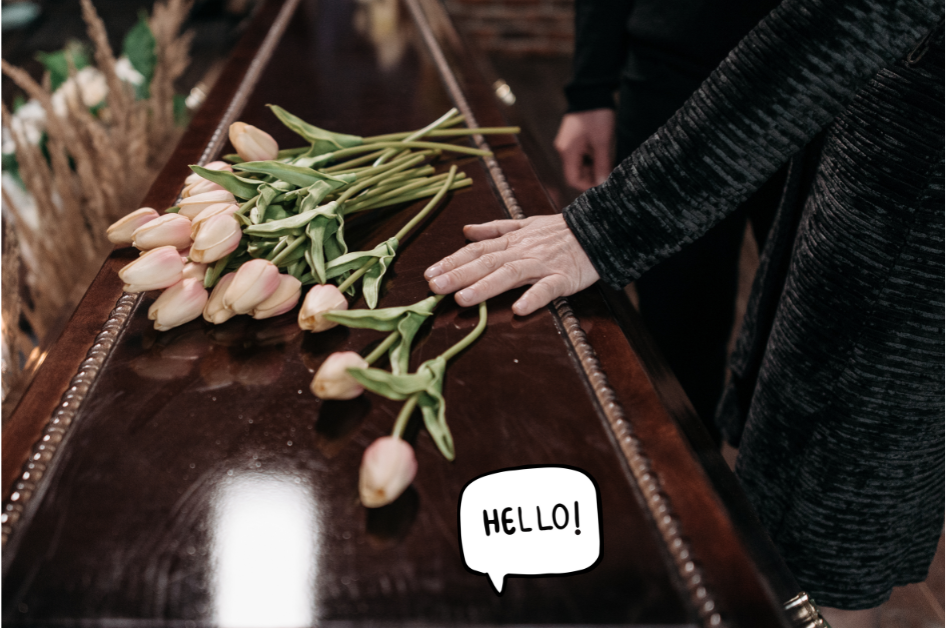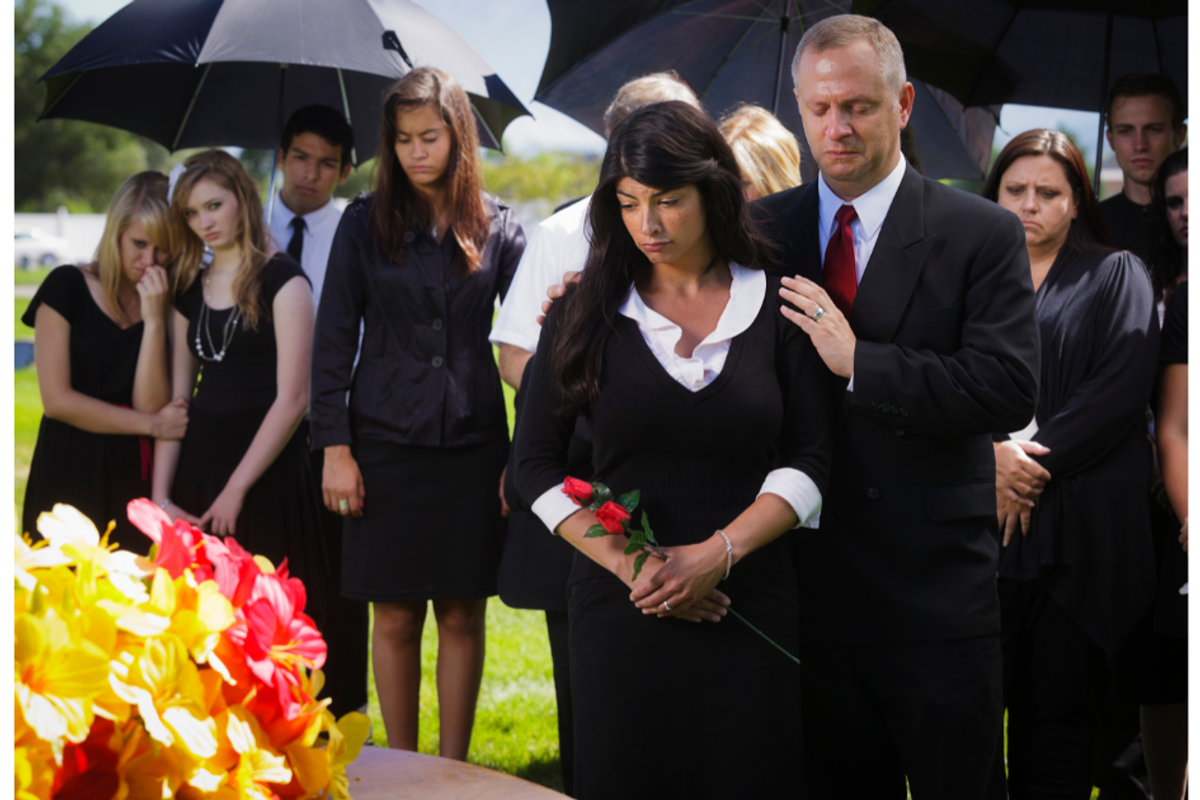Family was mourning grandpa at his funeral. Then a 'Hello' from his coffin stunned them.
The family was heartbroken, bidding goodbye to their beloved grandpa when a sudden sound from the coffin changed the whole mood.
Family grieving at funeral.
A funeral is a time to bid goodbye to the ones we love, but they are also be moments to celebrate the life and memories made with our lost loved one. Funerals are bittersweet in this way, straddling the line between joy and deep sorrow. They're not only a time to run through the accomplishments and events of a life, but they're also an opportunity to remember the person for the unique individual they were, in all their multifaceted glory—the good, the bad, and everything in between.
In 2019, a grandpa from Dublin called Shay Bradley was having his last rites performed by family and friends, per Dublin Live. Surprise struck when the mourning family members heard a “Hello!” coming from the coffin. Seriously.

The grandfather of eight was known for his jovial, heartwarming wit and sense of humor. Clearly, one of his final wishes was to remind his family that even a time like this was ripe for the ultimate "granddad" joke. Ben Bradley, one of Shay's grandsons, posted a video of his grandfather's last joke on X.
In it, Shay’s loved ones are seen surrounding the burial spot. In the seconds after Shay’s coffin is lowered into the ground, a loud “Hello!” is heard. It's followed by a loud knocking and then, "It's Shay! I'm in here; let me out!" Though clearly shocked and confused at first, the family members break into smiles and tearful laughter.
In just a moment, Shay's final prank brought humor and levity to the tearful graveside, something Shay was well-known for while he was alive. “For anyone who hasn’t seen, My grandad was a one-of-a-kind character and has left his legacy for the world to see,” Ben wrote in his caption. He followed with the hashtag #shayslastlaugh.
The rest of the recording was Shay breaking into a sarcastic sing-song voice and trying to convince his family members he was "unwillingly stuck in the coffin." “Hello again, it’s me. I’m here to say goodbye,” he sang.
By the end of it all, Shay's family was gifted a last memory of their beloved grandpa, just as he intended. His daughter, Andrea, shared a picture of her late father on X. “Here is a picture of the legend himself," she wrote in the caption. "My dad, Shay Bradley. It was his dying wish that we played this at his funeral. What a man... To make us all laugh when we were incredibly sad..... He was some man for one man... Love you forever, Poppabear. #Shayslastlaugh”
One commenter wrote, “Glad he was sent off with a laugh, after all, it is a celebration of his life..” Another added, “His video is now making people smile around the world. What a legend!”
What a legend indeed.
This article originally appeared in September. It has been updated.

